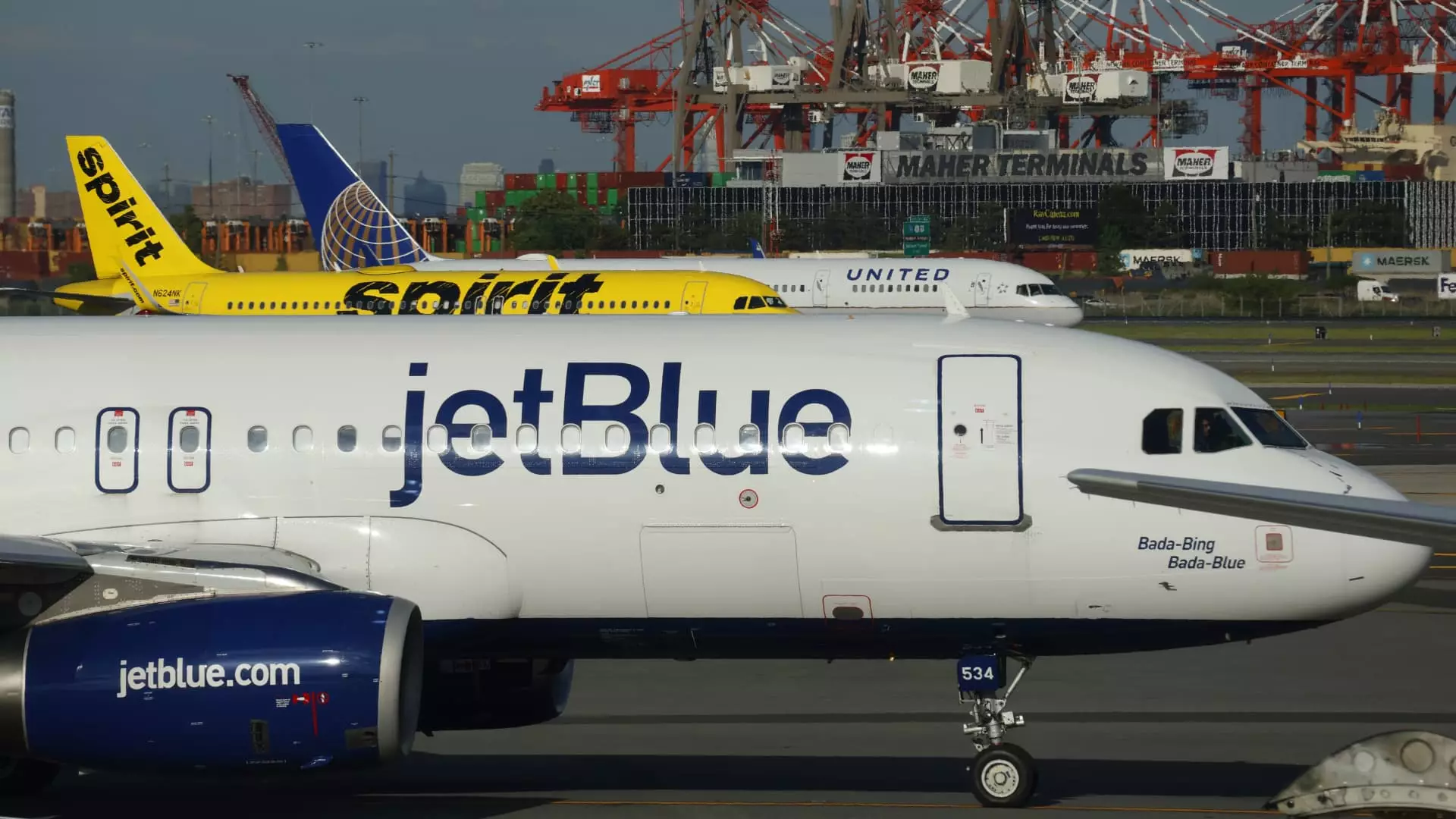The airline industry, which was once eager to expand their fleets with new aircraft, is now facing a new reality. Cash-strapped and low-cost airlines are deferring billions of dollars worth of plane deliveries in a bid to save money and restore profitability. This shift in strategy comes at a time when engine repairs and increased costs are putting pressure on airlines to cut expenses and streamline operations.
The decision to defer new aircraft deliveries has far-reaching consequences for airlines. With an oversupply of flights in the market, carriers are forced to readjust their growth plans to align with current demand. The bulk of the cost of an aircraft is paid upon delivery, making it a significant financial commitment for airlines, especially in times of uncertainty.
Frontier Airlines, one of the carriers grappling with deferred deliveries, recently announced that it would be pushing back the receipt of 54 Airbus aircraft until at least 2029. This move reflects the challenges faced by airlines due to years of delays in aircraft delivery schedules, resulting in a backlog of orders that need to be managed carefully to avoid overcapacity.
JetBlue Airways, another player in the airline industry, has opted to defer the delivery of 44 Airbus A321 airplanes through 2029, in a bid to save approximately $3 billion. The New York-based carrier is also exploring other cost-saving strategies such as extending aircraft leases and cutting unprofitable routes to improve its financial performance.
In addition to financial constraints, airlines are also contending with grounded jets resulting from engine recalls, such as those from Pratt & Whitney. The inability to utilize all their aircraft exacerbates the financial strain on airlines, as they are forced to grapple with the costs of maintaining idle planes while struggling to return to profitability.
Spirit Airlines, which had faced a turbulent period with a failed acquisition attempt by JetBlue, is also deferring aircraft deliveries as part of its efforts to turn around deep losses. The airline reported a significant drop in revenue and incurred substantial losses, prompting the furlough of pilots and the deferral of all Airbus orders until 2030.
While low-cost carriers like Spirit and JetBlue are making strategic decisions to defer aircraft deliveries, the broader airline industry continues to face challenges. The scarcity of fuel-efficient planes and skilled worker shortages are further complicating efforts to ramp up production and meet demand for new aircraft.
Boeing and Airbus, the main suppliers of commercial aircraft, are struggling to increase production output due to ongoing post-Covid challenges. Delays in aircraft deliveries are disrupting airlines’ growth plans, forcing them to reevaluate their strategies and potentially slow down hiring and expansion efforts.
The decision by airlines to defer aircraft deliveries signals a significant shift in the industry landscape. As carriers navigate financial constraints, engine recalls, and supply chain disruptions, they must adopt innovative strategies to mitigate costs and restore profitability. Balancing growth ambitions with financial sustainability will be crucial for airlines to weather the current challenges and emerge stronger in the post-pandemic era.


Leave a Reply